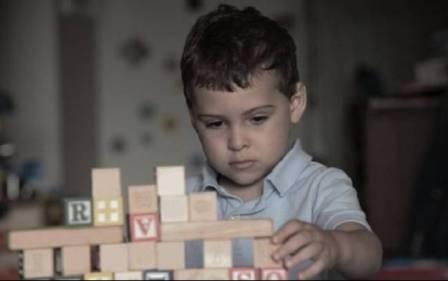
Children who have an older brother or sister with autism or attention deficit hyperactivity disorder (ADHD) may be more likely to develop these conditions than kids who don’t have an older sibling with these neurological problems, a new study suggests.
When an older sibling had autism, younger kids were more than 30 times more likely to be diagnosed with autism and three times more likely to be diagnosed with ADHD than children whose siblings didn’t have these disorders, researchers report in JAMA Pediatrics.
And kids with an older sibling with ADHD were 13 times more likely to be diagnosed with ADHD and more than four times more likely to be diagnosed with autism.
“These findings provide further support for shared familial mechanisms underlying these two disorders, which appear to be largely genetic in nature,” said lead study author Meghan Miller of the University of California, Davis.
“However, we could not fully evaluate the degree to which other factors contributed to these findings, such as shared environmental influences or increased parental monitoring of later-born siblings by parents who already have at least one diagnosed child,” Miller said by email.
About 6 percent of kids have ADHD and roughly 1.7 percent of children have autism, according to the U.S. Centers for Disease Control and Prevention.
Young children with autism experience a variety of symptoms, which may include repetitive behaviors like hand flapping or body rocking, extreme resistance to changes in routine, and sometimes aggression or self-injury. Speech and behavior therapy can help with some of these things, as can psychotherapy.
ADHD, meanwhile, is characterized by social and behavioral problems as well as challenges in school like difficulty with focusing or sitting still. Stimulant medications can help with some behavior and attention issues.
For the current study, researchers examined data on 15,175 children with older siblings, including 730 kids with ADHD and 158 with autism.
Overall, about 12 percent of younger siblings of kids with autism were diagnosed with this disorder, compared with less than one percent of younger siblings of children who didn’t have autism.
And, about 12 percent of younger siblings of kids with ADHD were also diagnosed with this disorder, compared with roughly 1.5 percent of younger siblings of children who didn’t have ADHD.
The study wasn’t a controlled experiment designed to prove whether or how having an older sibling with ADHD or autism might directly cause these disorders in younger siblings.
Even so, the results suggest that parents should be aware that ADHD or autism in one child may result in a higher potential for these conditions in younger children, said Tony Charman of King’s College London, author of an accompanying editorial.
“Where parents have concerns, they should seek advice and are often well-placed to do so in an active way because of their own learning and understanding of how such neurodevelopmental conditions can present and affect a child’s development and behavior based on their experience of their older child,” Charman said by email.
“Many parents are resilient and resourceful because they have had to be to look after and support their older child with a diagnosis so may already have many skills in place that will also help support their younger child too,” Charman added.
Source: Reuters
 FR
FR EN
EN AR
AR








